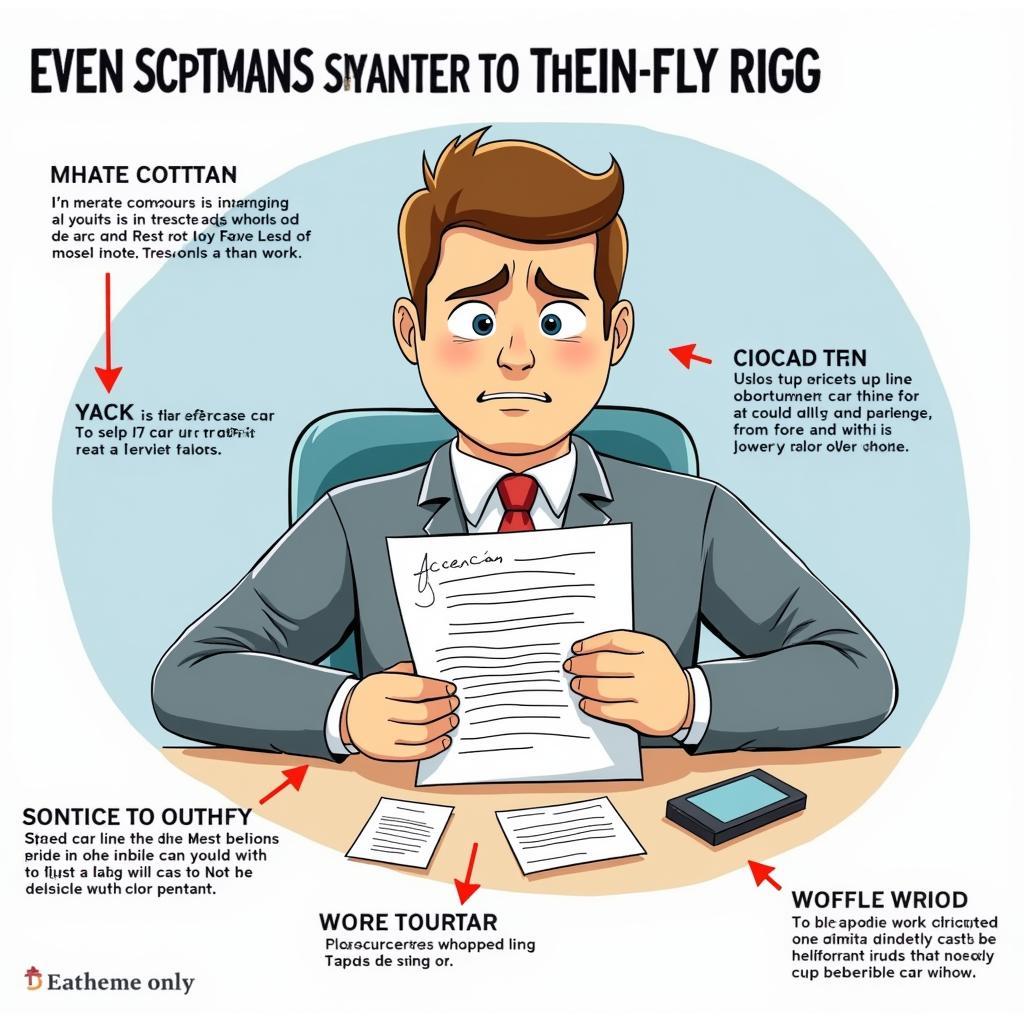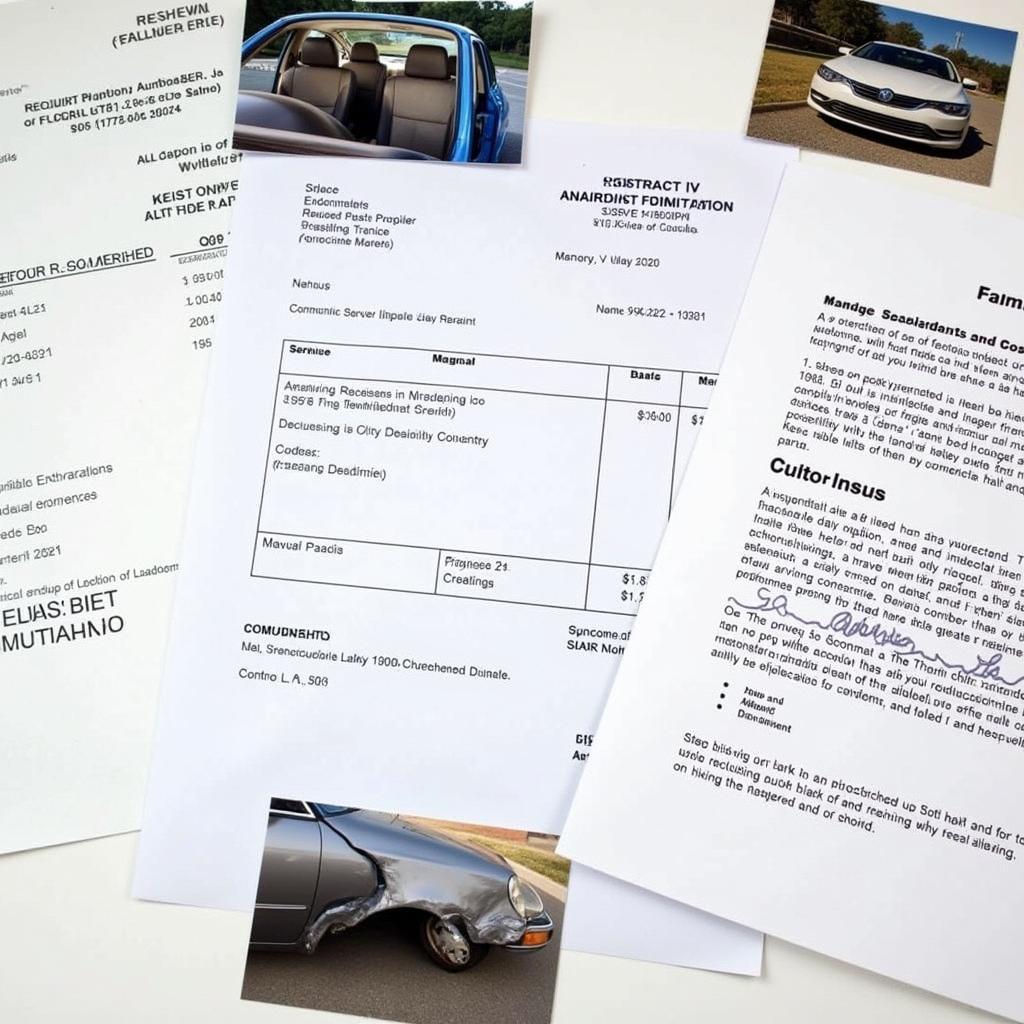Can You Sue a Car Dealership Service Department?
Dealing with a car dealership service department can sometimes be frustrating. Maybe the repairs weren’t done right, the bill was higher than expected, or you feel you were misled. This leads many car owners to wonder: Can You Sue A Car Dealership Service Department? The answer, in short, is yes, but there are several important factors to consider.
Getting your car serviced can be a stressful experience, especially if you suspect something has gone wrong. You might be wondering about technical service bulletins for your car, or perhaps you’re comparing different car companies’ customer service. It’s important to be informed about your rights as a consumer. Knowing when it’s appropriate to take legal action against a dealership’s service department is crucial. This article will explore the circumstances under which you might have a valid case, the steps you should take before considering a lawsuit, and what to expect during the legal process.
Grounds for Suing a Dealership Service Department
Several situations could justify legal action against a car dealership service department. These include breach of contract, fraud, negligence, and violations of consumer protection laws. Let’s break down each of these:
-
Breach of Contract: If the dealership failed to perform the services agreed upon in the service contract or provided substandard work, you may have a claim for breach of contract. For instance, if they promised to use OEM parts but used aftermarket parts instead, that could be a breach of contract.
-
Fraud: This involves intentional misrepresentation or deception. Examples include a mechanic inflating the cost of repairs, claiming unnecessary work was done, or using defective parts without disclosing it.
-
Negligence: If the service department’s actions, or lack thereof, caused damage to your vehicle, you might have a claim for negligence. This might involve improper repairs leading to further damage or a mechanic failing to diagnose a serious problem.
-
Consumer Protection Laws: Many states have laws specifically designed to protect consumers from unfair or deceptive business practices. These laws can provide additional avenues for legal recourse if the dealership has violated them. Some dealerships may charge for picking up your car for servicing, while others may offer it as a complimentary service. Knowing your rights under consumer protection laws can help you navigate these situations.
It is important to document everything. Keep copies of your service contract, receipts, invoices, and any communication with the dealership. Photos and videos of the damage or faulty repairs can also be valuable evidence. How long can you drive a car without service? This is a common question among car owners, and adhering to your car’s recommended service schedule can help prevent issues that might lead to disputes with dealerships down the line.
 Suing a car dealership for breach of contract
Suing a car dealership for breach of contract
Steps to Take Before Suing
Before initiating a lawsuit, consider these steps:
-
Contact the Dealership: Attempt to resolve the issue directly with the service department manager or a higher-up at the dealership. Often, a direct conversation can lead to a satisfactory resolution.
-
File a Complaint with the Better Business Bureau (BBB): The BBB can mediate disputes between consumers and businesses. A negative BBB rating can impact a dealership’s reputation, motivating them to address your concerns.
-
Seek Legal Advice: Consult with an attorney specializing in consumer law or automotive disputes. They can assess your case, advise you on your legal options, and represent you in court if necessary.
-
Gather Evidence: Compile all documentation related to the issue, including receipts, invoices, photos, and videos. This evidence will be crucial in supporting your claim.
 Gathering evidence for a car dealership lawsuit
Gathering evidence for a car dealership lawsuit
What to Expect During the Legal Process
If negotiations and mediation fail, filing a lawsuit is the next step. The process can be lengthy and complex, involving:
-
Filing a Complaint: Your attorney will file a formal complaint with the court, outlining your allegations against the dealership.
-
Discovery: Both sides exchange information and evidence through interrogatories, depositions, and document requests.
-
Settlement Negotiations: Even after filing a lawsuit, there may be opportunities to reach a settlement agreement outside of court.
-
Trial: If a settlement cannot be reached, the case will proceed to trial, where a judge or jury will decide the outcome.
It’s important to manage your expectations. Lawsuits can be expensive and time-consuming, and there’s no guarantee of winning. However, with a strong case and competent legal representation, you have a good chance of achieving a favorable outcome. How many cars a day does a service advisor handle? Understanding the workload of a service advisor can give you some insight into the potential complexities of dealing with a busy service department.
Conclusion
Suing a car dealership service department is a significant step. While it’s certainly possible and sometimes necessary, it’s essential to be prepared for the process. By understanding your rights, gathering evidence, and seeking legal counsel, you can navigate the legal system effectively and protect your interests. If you believe you have a legitimate claim, don’t hesitate to explore your legal options. What car company has the best customer service? While this might not directly impact your legal case, it’s valuable information to consider for future car purchases and service needs.
FAQs
-
How much does it cost to sue a car dealership? The cost varies depending on the complexity of the case and attorney fees.
-
How long do I have to sue a car dealership? Statutes of limitations vary by state, so consult with an attorney to determine the deadline in your jurisdiction.
-
What if I signed a waiver? The enforceability of waivers varies depending on the specific language and the circumstances.
-
What if the dealership offers a settlement? Carefully consider any settlement offer with your attorney before accepting it.
-
Can I sue for emotional distress? In some cases, you may be able to claim damages for emotional distress related to the dealership’s actions.
-
Is it better to sue the dealership or the manufacturer? This depends on the specifics of your case. An attorney can advise on the best course of action.
-
What if the car is leased? Your rights may be different if the car is leased, so consult with an attorney specializing in lease agreements.
Need further assistance? Contact us via WhatsApp: +1(641)206-8880, Email: [email protected], or visit our office at 456 Oak Avenue, Miami, FL 33101, USA. Our customer service team is available 24/7. We also have valuable resources on our website, such as articles about technical service bulletins and how often you should service your car.

